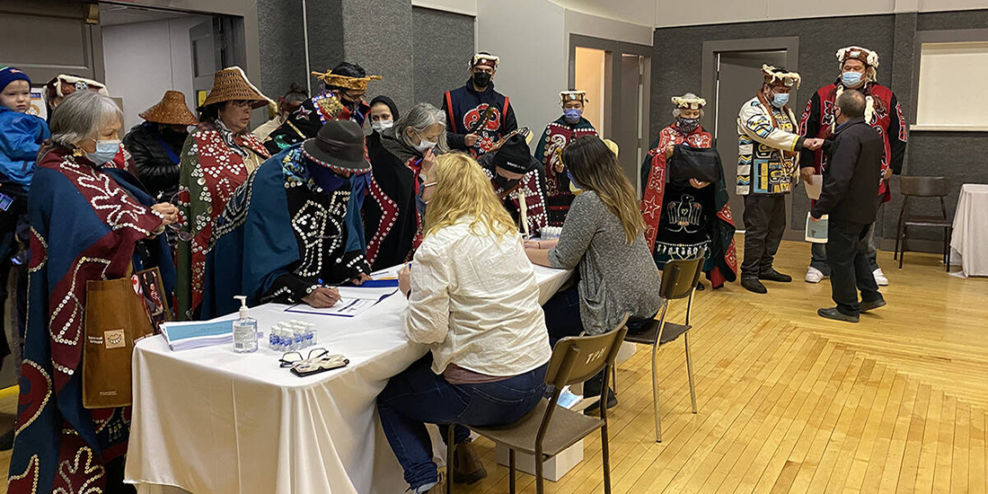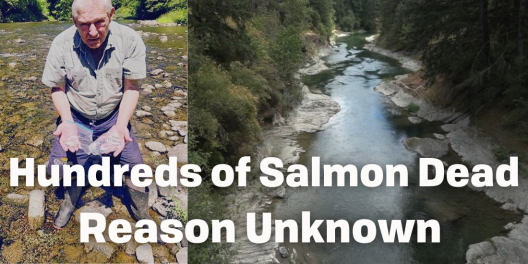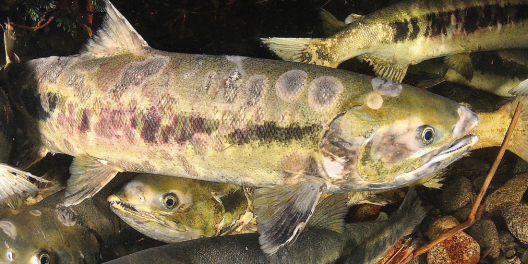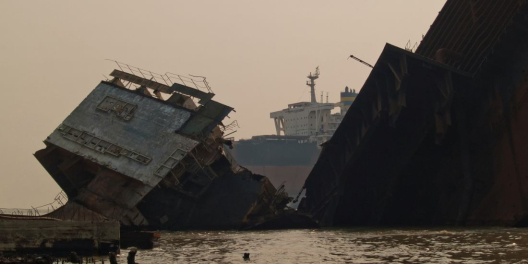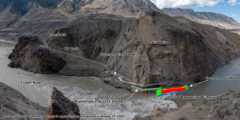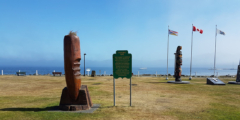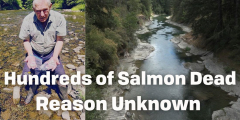A joint venture between Norway-based Grieg Seafood and the Tlowitsis First Nation is causing division within the Tlowitsis and neighbouring nations.
The issue is a plan to build an open-net pen salmon farm in Chatham Channel east of Minstrel Island.
Open-net pens are full of sea lice and other diseases, which can infect wild salmon.
Grieg and a faction of the Tlowitsis, led by Chief John Smith, want to build the salmon farm.
But neighbouring Kwakwaka’wakw nations say they’ve fought too hard and too long to get fish farms out of the Broughton Archipelago and Discovery Islands. So they don’t want to let this one slide.
There were two open houses on the topic on November 30 in Port McNeill.
At the first one, a virtual meeting, Chief Smith said the site is within his Nation’s unceded territory and that it would join three other farms in nearby Clio Channel.
He called fish farming a “godsend to our tribe.”
“Before we had income from the fish farms and some forestry, we had basically nothing.”
He said the joint venture would help develop a new community for the Tlowitsis on band-owned land near Campbell River.
The new community is called “Nenagwas,” which means ‘a place to come home to,’ because the Nation has not had a home for over 40 years.
However, hereditary chiefs and members of other Kwakwaka’wakw nations raised concerns about fish farming. They said they weren’t consulted on the new fish farm, and that the approval process is flawed.
Ruby Manila, a member of the Da’naxda’xw First Nation, said three of four Da’naxda’xw hereditary chiefs weren’t told about the application.
Brian Wadhams, a hereditary Ma’amtagila chief and former ‘Namgis First Nation councillor, said it’s important for Tlowitsis Nation to negotiate with all surrounding Nations.
“What disturbs us the most is that we fought for 30 years to remove farms from the Broughton Archipelago, and here we are going back to the same old, same old,” he said.
“It’s really frustrating for us as First Nations people that rely on those areas for food sustenance and our food security needs.”
Others pointed out that the proposed fish farm is on disputed territory. The land and water of a few different Nations overlap in that area.
After 14,000 years of history, it can be hard to pin down what land belongs to whom.
Things got heated at the second town hall later that night. It was an in-person meeting at the Port McNeill Community Hall. The Kwakiutl, Ma’amtagila, and ‘Namgis first nations showed up in full traditional dress to protest.
‘Namgis councillor Ernest Alfred, who is also a hereditary chief for the Tlowitsis First Nation, demanded to know why the open house was held in Port McNeill.
He said his people had to travel from Cormorant Island by boat, which made getting to the meeting really difficult for them. So he asked for another meeting with the ‘Namgis in Alert Bay.
“And for those who are pro-industry, we’ve said it before, we’ve said it loud and clear, we want the farms out,” Alfred said.
Chief John Smith doesn’t believe open-net fish farms cause damage to the environment or wild salmon.
In 2018, the federal government agreed to pull the licenses for 17 fish farms in the Broughton Archipelago. There have been fewer sea lice on wild salmon since they closed. The feds pulled another 19 licenses in the Discovery Islands. As a result, these farms will close by June 2022.
